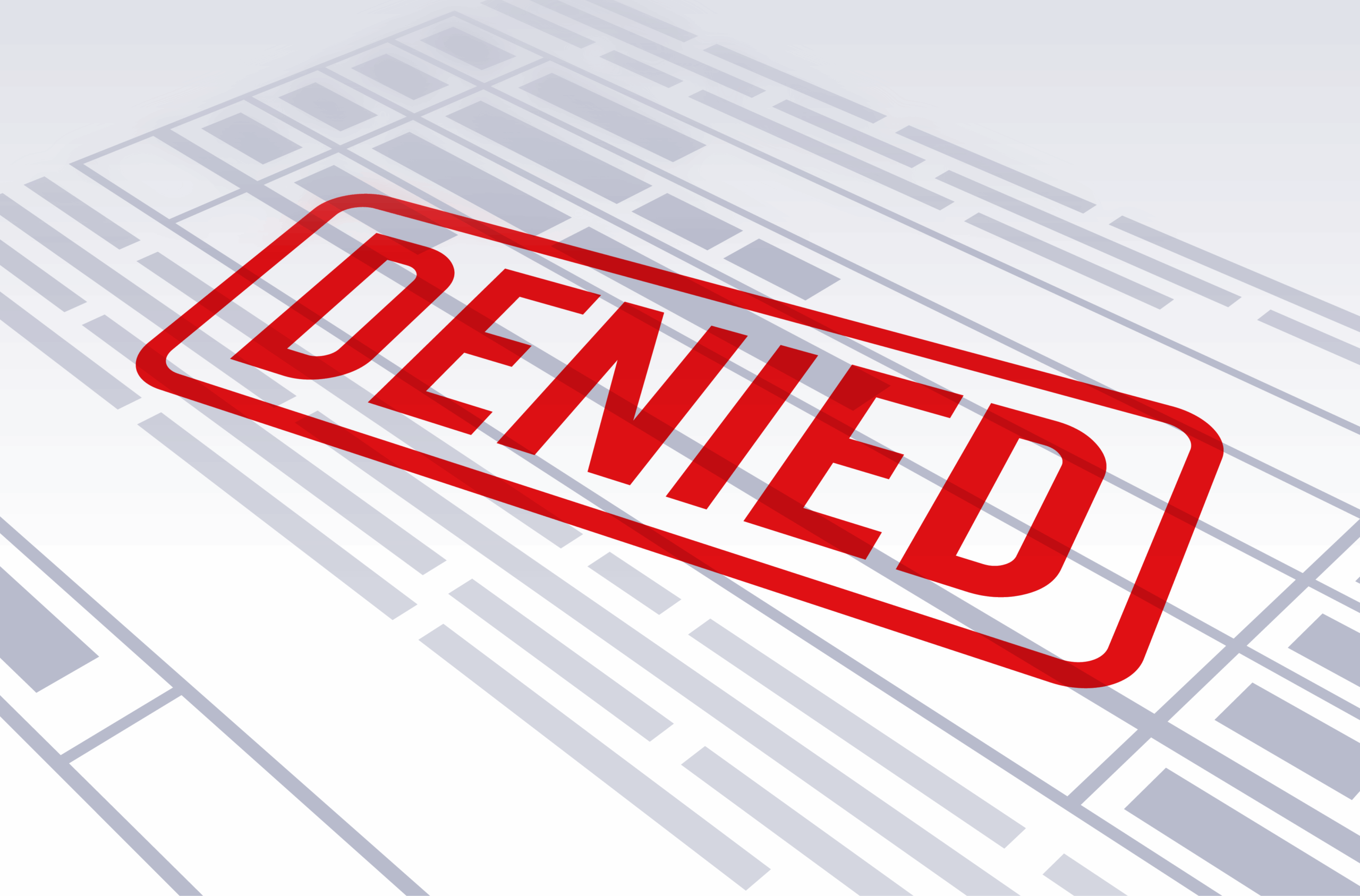
Untangling Prior Authorization

Prior authorization requires covered healthcare beneficiaries to gain insurance company approval before receiving certain treatments.
Insurers say they use prior authorization to ensure treatments are appropriate and to reduce spending, but many doctors and patients see it as a barrier to getting needed care. In this interview, Resneck and Carmichael discuss the use of prior authorization and how employers and brokers can help health plan members weave through its red tape.
In late June, executives from major carriers including UnitedHealthcare, Aetna, and Cigna Group met with U.S. Health and Human Services Secretary Robert F. Kennedy Jr. to discuss changes to the practice. (See sidebar) The pledges they made at the meeting are voluntary, without oversight by HHS, and are meant to standardize and expedite the process and reduce the number of claims that trigger prior authorization.
CARMICHAEL: Prior authorization was there to make sure that what was being covered by the insurance carriers was medically necessary. And I think what’s come under fire lately stems from lawsuits claiming some of the carriers use AI to automatically deny claims. And prior authorization has gotten a bad rap that the carriers just deny everything. Even if you look at some of the most recent numbers, like in Medicare Advantage data from 2023, they had about 50 million prior auth claims where they had to make determinations. Of those [denials] that were appealed almost 82% were [partly or completely] overturned. This means those were medically necessary and the denial was improper.
RESNECK: In my own practice, the use of prior authorizations has only continued to grow in recent years. Health plans used to ask us to explain our rationales to get approval for treatments only when we prescribed brand new, extremely expensive therapies. But now, I frequently get prior auth requests even for generic topical creams and generic oral medications that have been around for more than 40 years. This is an abuse of the prior authorization system by insurance companies, who know that many patients will just give up on getting their needed treatments while waiting for approval, facing consequential harms to their health.
I also continue to see Kafkaesque denials that make my head spin. For example, patients who are stable on a treatment that is working great for a severe disease, only to have their renewal rejected because they no longer meet severity criteria. In other words, they can no longer have the medication because it’s working.
Major national surveys have confirmed that my own experience mirrors that of physicians across specialties across the country. The average physician now fills out 39 prior authorizations per week—chewing up time and practice resources that could be devoted to other patients at a time when it’s hard enough to get in to see physicians.
RESNECK: They are a necessary part of decision-making for every physician. We try very hard to select treatments that our patients can get. But part of the problem is that health plans often make it very difficult to know what will and won’t be approved, with mysterious or top-secret criteria for approval. So, it’s often a guessing game.
RESNECK: The process is often an overwhelming tangle of prior auth forms filled out, faxes sent, appeal letters, and verbal appeals. When we finally are granted a time-consuming “peer to peer” appeal call, the person on the other end making the final decision is often disappointingly a non-physician or a physician of a different specialty who knows little about the disease we are treating or the therapy in question.
RESNECK: After they spend time getting their condition diagnosed, and talking through treatment options with a physician, the plan is often delayed or derailed entirely by the prior auth process. Studies have shown that many patients with chronic conditions end up giving up and delaying treatments, causing them to return later with much more severe disease. In other cases, we can’t get needed, evidence-based, appropriate treatments or procedures cleared for urgent, life-threatening conditions. This leads to unnecessary hospitalizations, ER visits, and unnecessary patient harms.
RESNECK: I was glad to see that insurers recently pledged reforms to ease the burdens of prior auth, but I’m nevertheless waiting to see if these promises lead to real change. Major health insurers made similar promises in 2018 and again in 2023—and after each of those pledges, the volume of prior auths and denials got worse, with promises unfulfilled. That’s why patient groups and physician groups have been working together to push Congress, federal agencies, and state lawmakers to step in and require common-sense reforms.
Prior auth requirements should be returned to their original purpose—to only be used for interventions that are new and expensive or not yet fully supported by evidence. Patients shouldn’t suddenly lose prior approvals when health plans change formularies or when patients change plans. Response times must be shortened, and all denials should be reviewed by a licensed and qualified physician with expertise in the patient’s condition.
CARMICHAEL: I think brokers have the ability to educate their clients on what the different prior authorization rules will be from carrier to carrier. I know that a lot of the carriers all agreed to the same basic principles, the six new commitments that they all agreed to. But how they go about them is going to be different, like which procedures are going to be subject to prior auth and which ones aren’t. So, brokers are going to have the opportunity to educate their clients about the differences from one carrier to another, one plan design to another. Figuring out which areas are going to be more streamlined could bring value to your clients.
I also think every broker has been in the situation where a client calls and says, “I’ve got this employee who needs this care, and they’re being denied. I need you to be my point of contact with the carrier to help get this pushed through, because this employee needs this.” And I think that brokers spend a lot of time being the middleman between the patient, the provider, and the carrier, trying to assist with these claims that have been denied. I think freeing that up will be beneficial to brokers.
CARMICHAEL: You can look at it from two lenses. The first is, prior auth is evil because it’s unnecessarily cumbersome and it delays care. And from the employer standpoint, you have unhappy employees. When care is denied or delayed, they end up being sicker, which means more absenteeism while they’re trying to get things solved, more [Family and Medical Leave Act leave] being applied for, and, in the long run, possibly higher claims.
So, if you can reform that, and prior authorizations are cleaner, they’re quicker, you’re going to have people getting better access to care and getting treatment sooner. But then there’s going to be a balancing act. If we remove the strong pre auth we may see an influx [of claims being paid by employers], especially in the pharmacy side, that could trickle down to more use of name-brand versus generic drugs, or the use of medicines like GLP-1s just to lose weight instead of for obesity or diabetes. It’s kind of a catch-22, but I do think the positives outweigh the negatives from an employee satisfaction and care standpoint.
CARMICHAEL: Nothing had been done on a federal level until this meeting with RFK Jr. So the problem was, just like a lot of other things, individual states started passing their own prior authorization reform bills. That ends up leading to a hodgepodge, so if you’re a provider or a carrier, you have to know what state the claim came from to make determinations. Having something on a federal level can help clean that up.
Private health insurers that committed to the U.S. Department of Health and Human Services to improve the prior authorization process by the end of this year include Aetna, Centene, Cigna, GuideWell, Highmark Health, Humana, Kaiser Permanente, and UnitedHealthcare, along with AHIP and the BlueCross BlueShield Association.
The six changes they pledged are:
Standardize electronic prior authorization submissions;
Reduce the number of medical services that require prior authorization;
Honor existing authorizations when patients change insurance plans in the middle of treatment;
Enhance transparency and communication about authorization decisions and appeals;
Minimize delays with real-time approvals for most requests; and
Ensure medical professionals review all clinical denials.
CARMICHAEL: I think it’s definitely the right direction. Anytime we can get more standardized electronic records in the healthcare world, that’s definitely better. The next one was reducing the scope [of services that require prior authorization] and I think a lot of that goes back to Medicare Advantage. A good chunk of Medicare Advantage claims are subject to pre auth—more so than in private insurance. But when treatments automatically have to go through pre auth there is often not a question of need—like knee surgery, which is usually pretty clear patients need it.
Another pledge was they would keep continuity of care when someone changes health plans for 90 days. That’s great, because if someone is taking a certain drug that’s already been approved by one carrier, and you move to a new carrier, there’s time to get a 90-day supply while you’re working through that process, so you’re not stuck without the medication that you need.
And enhanced communication and transparency on determination again is another. I think there’s a lot of confusion when you see why so many claims aren’t appealed. People just don’t understand the process. You get these letters that explain how you appeal, but you don’t really know what documents you need from your provider. And I think simplifying it so laypeople can try to understand how to navigate a claim appeal in the healthcare world is a good thing.
CARMICHAEL: Correct. Like the Medicare Advantage data, in 2023, there were 50 million prior authorization determinations that were made, and 4 million were fully or partially denied. Of the 4 million that were denied, only about 11% were appealed.
CARMICHAEL: Pharmacy and outpatient surgery. Especially where there are alternatives prior to surgery, so things like musculoskeletal injuries where physical therapy has to be completed first. And in pharmacy, things like specialty pharmacy, especially medications administered in a hospital setting.
CARMICHAEL: There’s still going to be a way to go. I think some of these are vague. For example, enhancing communication transparency on determination—unless the government comes out with standard model language, what does that mean, exactly? What is clear and easy to understand to me is going to be different from somebody else versus another person. And reducing the scope of claims subject to prior authorization—will that be standardized across the industry or is each carrier going to determine which claims they want to remove prior auth from? I think there’s always going to be some loopholes that are exploited on certain things. Especially claims that are more expensive that will still require prior authorization, and each carrier may have different clinical requirements.




